How to Keep Kids (and Pets) Safe During Pest Control in Your Home
![Are You Keeping Kids (and Pets) Safe During Pest Control in Your Home? [node:title]](/sites/default/files/styles/wide/public/kids-pet-dog-on-couch-sitted-safe-during-pet-control.jpg?itok=gfFskymn)
Many of us keep pets in our homes. They are a part of our family and we love them dearly. We want to keep them safe and happy always.
However, sometimes we notice pests in the home and have to do some pest control. But doing pest control at home with kids and pets around can pose some health and safety risks for them.
"Inhaling or ingesting these [chemicals in pesticides] can be toxic and result in symptoms like asthmatic breathing, headaches, nausea, tremors, convulsions, swelling, and itching," explains Jennifer Sass, Ph.D., a senior scientist with the Natural Resources Defense Council, a nonprofit environmental-action group.
However, even with the potential health risks of using pesticides for pest control, breaking up with pesticides is hard to do because they are the most common way to control pest. And while the quickest and safest solution in this case would be to call professional pest exterminators, you still have to take some precautions to protect your kids and furry friends.
Fortunately, there are several things you can do ahead of time to ensure your kids and pets are safe, and help the exterminators do their job effectively and efficiently.
Let’s explore necessary preparations you need to take to keep your pets safe during pest control:
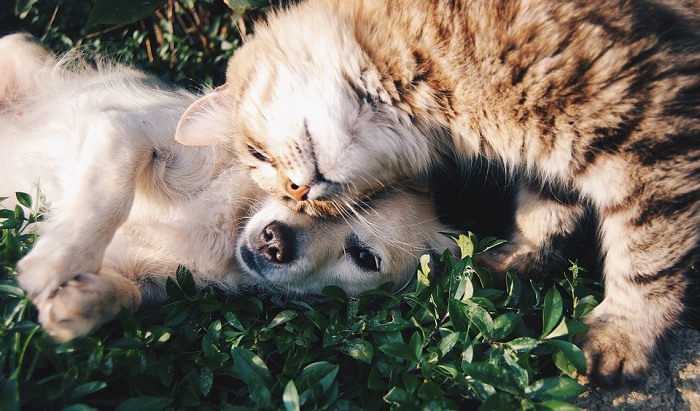
1. Notify Exterminators that You Have Kids and Pets
The pest control company must be aware if there are pets and children in the home so that they can prepare accordingly. Most pest control companies would enquire about it as part of their protocol, but it’s still best to inform them.
Tell them about the specific animals living in your home and age of your kids. They should also know your pet’s feeding area and where they usually spend a lot of time. Discuss when they’ll be visiting your home and what precautions you need to do before and after they leave.
Be sure to find companies that offer pest prevention and non-toxic solutions that aren't likely to harm humans. The company you choose should have a strong understanding of integrated pest management (IPM), which are a series of common sense principles that look first to preventing pests from getting established, and then focus on the least toxic options for treatment.
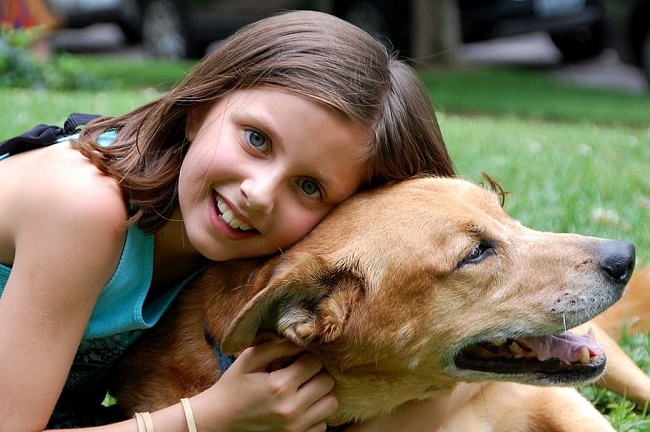
2. Discuss the Chemicals to Be Used
Any chemicals used by pest control companies are potentially harmful to pets and children. Always read the pesticide label and discuss with the company the type of pesticides they use and if there are any less dangerous types.
A good source of information about identifying effective, least-toxic pest control methods and pesticides for use against specific pests is the University of California (UC) Pest Notes series available on the UC Statewide IPM Program website.
The excellent news is that exterminators are trained to know the right chemicals to use and where to put them. For instance, they will use pesticide dust to coat insulation behind walls. It will affect bugs but ensure your dog has minimal exposure to it.
Pesticides that you purchase over the counter can also be dangerous to your pets. Make sure you read and carefully follow the label’s instructions before using them.
3. Select Bait Locations Carefully
You have to work closely with the pest control company to decide where to place your baits. Pesticide baits are typically mixed with food, which will make it attractive to your pet.
If you are going to use them to bait rats, gophers, snails, or slugs, make sure you place them where your pet and children can’t reach them.
You should also keep watch over the baits to ensure your dog or cat won’t dig them up.
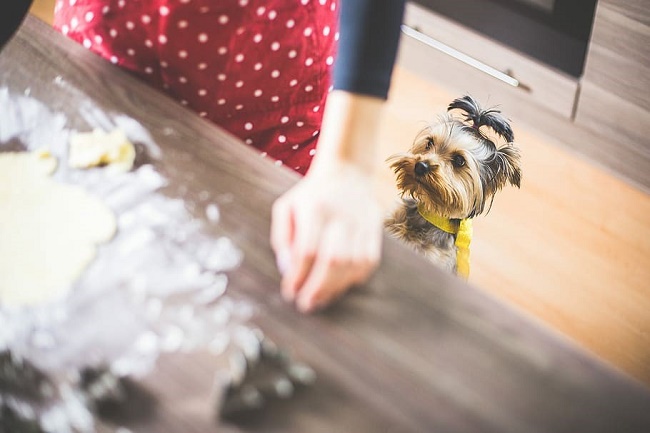
Secondary or relay poisoning is also a danger when you do pest control. Your pet could get sick if it eats prey that has been poisoned. Talk to the exterminator about products that have lower risks for relay poisoning.
4. Isolate Your Pets
One of the best ways to keep your pets safe during pest control is to keep them away. Children and pets are overly curious, especially when faced with new sounds or smells. But poking their noses or paws in nooks and crannies laced with chemicals will only cause problems.
Ask a relative or a good friend to take them in for several days, while your home is fumigated. You can also go for pet boarding if you have the money to spare. But if you have neither the cash nor someone to leave them with, then isolate them in a room that won’t be requiring treatment.
For instance, keep them in the garage or laundry area. Another option would be to keep them in their carriers, so they’re safely contained. The exterminator won’t start working on your property until your pets are properly secured. The sooner you secure your pets, the faster they can finish the job.
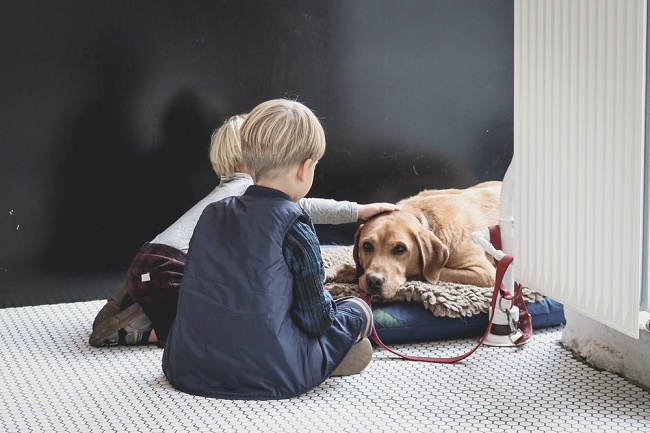
5. Remove All Toys and Dishes
Don’t forget to prepare for your pet’s area as well. You don’t want your pet poisoned because they played with a contaminated toy or ate from a dish exposed to chemicals.
Here’s what you can do to prevent that:
- Remove their food and water bowls from the area.
- Seal toys and bedding in containers and store them outside or in the garage. It will prevent any spray residues from lingering on the items.
- You should also wash beddings, blankets, or toys that might have been accidentally exposed or sprayed with chemicals. Use a hot water and soap mixture to get rid of the pesticide.
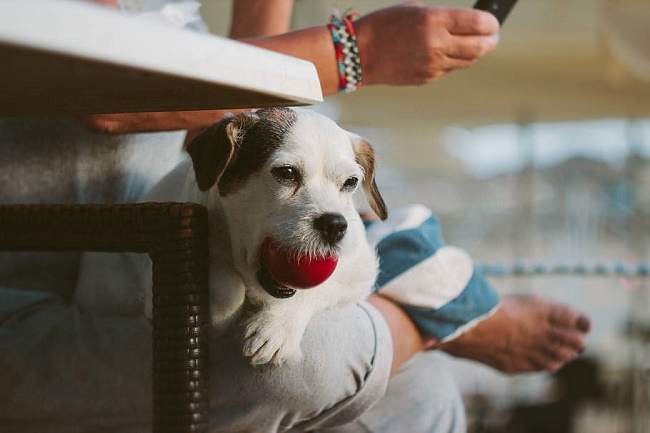
6. Cover Tanks and Cages
Pet fishes or reptiles are a bit more challenging to move, so you might have to take more time with them. For one, it’s hard to move aquariums or reptile habitats.
What you can do is to cover their cage or tank with old towels or blankets. It will help keep them docile and relaxed while also protecting them from the fumes.
Birds will undoubtedly become agitated with the smells and sounds of pest control, so it’s best to take them to another location.
7. Check with Your Veterinarian
A call or visit to your veterinarian will also be helpful, especially if you have birds for pets. Most birds’ respiratory systems are delicate and are susceptible to air-born chemicals or sprays.
Your vet can give you suggestions on ways you can keep your pet safe and calm while there’s pest control in your home.
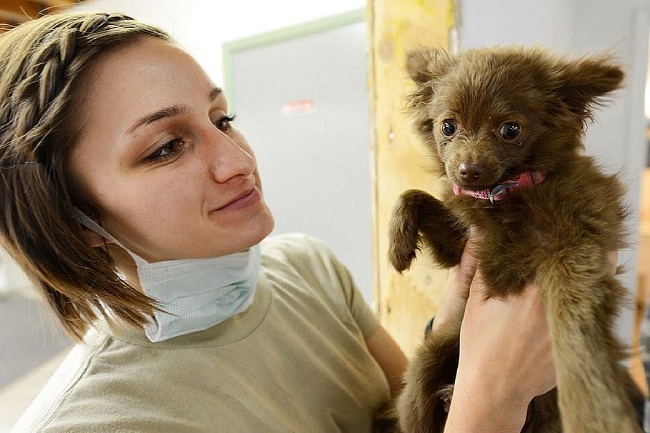
A veterinarian can also give you a more thorough explanation of how chemicals will affect your pets and advise you on how to provide first aid in the event your animal companion is exposed.
Conclusion
A reliable pest control company will take all the necessary steps to ensure your pets and kids are protected while they do their job.
But you can make things easier by doing your part and preparing ahead.





















